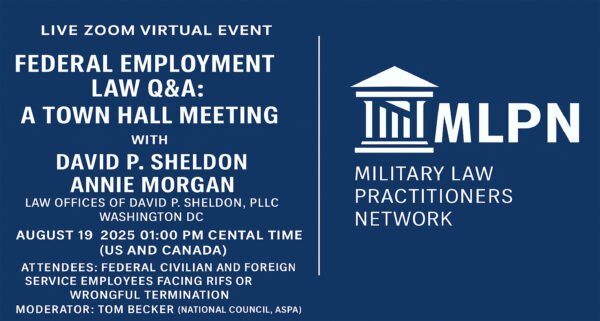
Senior Attorneys Annie Morgan and Dylan Thayer of The Law Offices of David P. Sheldon, PLLC, intend to prepare a class action lawsuit on behalf of retirees and surviving family members of the U.S. Public Health Service (USPHS) and National Oceanic and Atmospheric Administration (NOAA) who may face interruptions in their retirement or survivor benefit payments during a federal government shutdown.
If you or a loved one is a retired officer or survivor who has experienced or is at risk of delayed or withheld payments, we would like to hear from you. Your participation may help hold the government accountable and ensure permanent protection for those who served their nation honorably.
About the Case
Given funding lapses, USPHS and NOAA retirees and survivors will likely be exclude from payment while other federal and uniformed service members will continue to receive compensation. Although current legislative proposals—such as Sen. Ron Johnson’s “Shutdown Fairness Act” (S.3012)—would extend pay to certain active-duty and excepted employees, they, again, fail to protect retired officers and survivor beneficiaries.
This disparity leaves thousands of former officers and their families vulnerable to missed payments, despite their years of service and contributions to public health, environmental protection, and national readiness. The class action seeks a judicial remedy to establish that these payments are vested entitlements, not discretionary appropriations subject to political impasse.
“Our firm believes that no retiree or widow should ever wonder whether their next paycheck will arrive,” said David P. Sheldon, principal attorney. “These officers dedicated their lives to service—often in hardship tours and public emergencies. Their benefits should be guaranteed, regardless of Washington gridlock.”
Why Work with The Law Offices of David P. Sheldon, PLLC
David P. Sheldon, PLLC has earned national recognition representing service members, retirees, and federal employees in complex military and federal law cases, including matters before the U.S. Court of Federal Claims, federal district courts, and Boards for Correction of Military Records.
The firm’s attorneys have successfully advanced class and individual actions to restore benefits, correct pay injustices, and protect due process rights across every uniformed service—Army, Navy, Air Force, Coast Guard, NOAA, and USPHS.
With decades of combined experience and a results-driven record, the firm’s attorneys bring both strategic litigation experience and deep institutional knowledge of military and federal employment law.
Contact Us
If you are a USPHS or NOAA retiree, a surviving spouse, or know someone who has been impacted, we invite you to contact our firm to discuss your eligibility for participation in this class action.
Call: 202-546-9575
Contact: militarydefense.com/contact-us
Your involvement can help ensure that the government upholds its commitments to those who served and defended the public.
Share This Announcement
Help spread the word to NOAA and USPHS retirees and families who may be affected by these funding gaps. Together, we can safeguard the rights of those who have safeguarded our nation.




